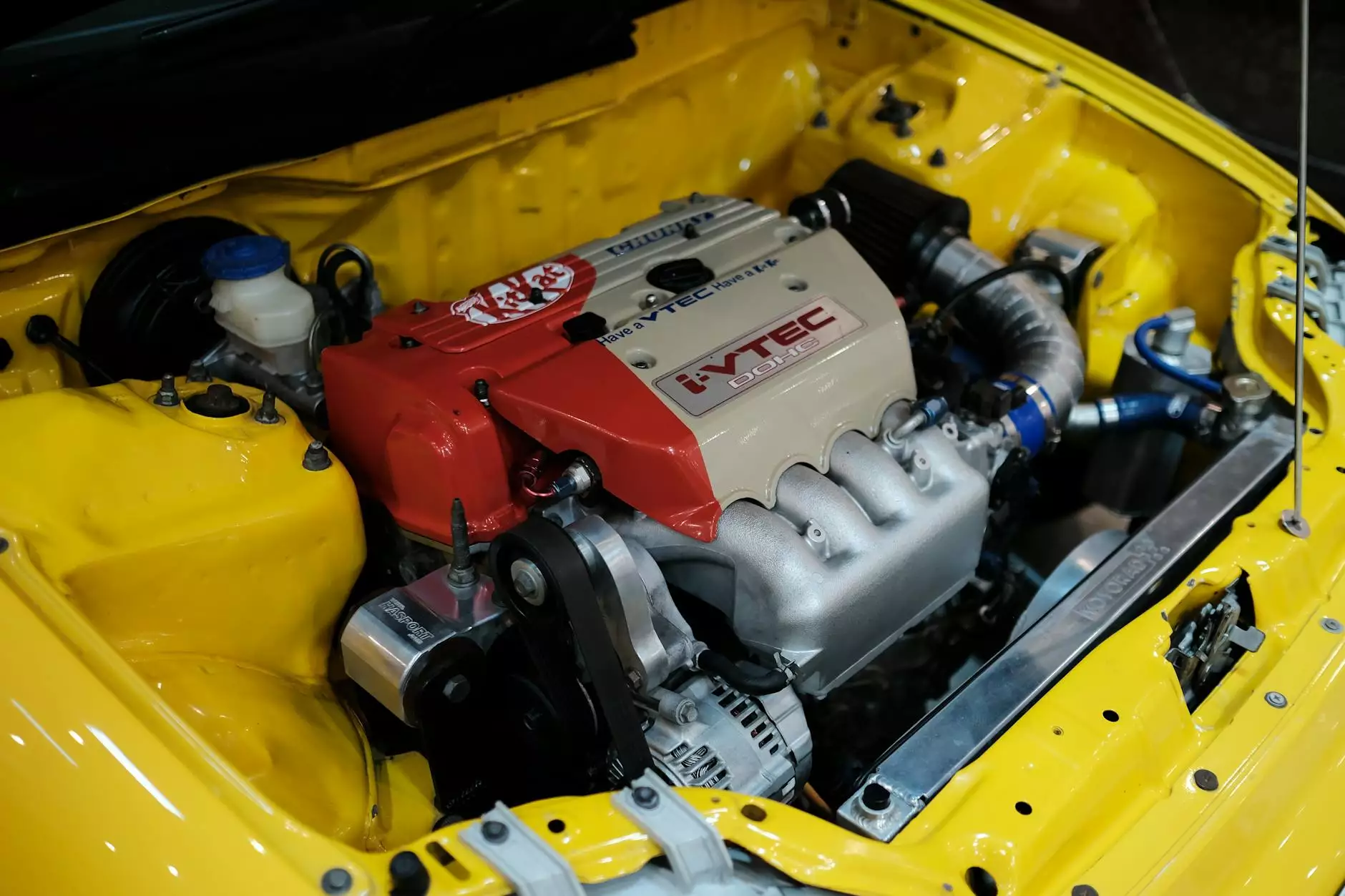The Importance of Crankshaft Car Engine Components in Diesel Engines

The crankshaft car engine is an essential component of any automobile, especially in diesel engines where performance and durability are crucial. The crankshaft serves as the heart of the engine, converting linear motion from the pistons into rotational energy needed to propel the vehicle. Understanding the nuances of this vital piece can empower you as an engine enthusiast, mechanic, or business owner in the domain of diesel engine parts.
What is a Crankshaft?
A crankshaft is a mechanical part that converts the reciprocating motion of the engine's pistons into rotational motion, which ultimately drives the vehicle's wheels. It is composed of several features, including:
- Main Journals: These are the bearing surfaces of the crankshaft that sit on the engine's main bearings.
- Crankpins: These are the sections of the crankshaft where the connecting rods are attached.
- Counterweights: Designed to balance the engine forces and reduce vibrations.
- Flywheel End: This is the side of the crankshaft that connects to the flywheel and transmission.
The Role of the Crankshaft in Diesel Engines
In a diesel engine, the crankshaft car engine plays an even more significant role than in petrol engines. Diesel engines typically operate at higher compression ratios and can generate more power at lower RPMs. Here’s why crankshafts are vital:
- Power Generation: The crankshaft helps in maximizing the torque output of diesel engines, making them ideal for heavy-duty applications.
- Durability: Given the operating conditions of diesel engines, crankshafts need to withstand intense pressures and cyclical stress, requiring high-quality materials.
- Efficiency: A well-balanced crankshaft reduces vibrations, enhancing engine performance and fuel efficiency.
Crankshaft Design and Engineering
The design of a crankshaft is crucial for its performance and longevity. Key factors include:
- Material Selection: Crankshafts are typically made from high-strength steel or cast iron to handle significant loads.
- Manufacturing Process: Processes like forging and machining are critical to achieving the precise tolerances needed for effective operation.
- Heat Treatment: To improve toughness and resistance to fatigue, crankshafts often undergo heat treatment.
Common Issues with Crankshafts
Despite their robustness, crankshafts can experience issues that may lead to a need for maintenance or replacement:
- Crankshaft Deflection:
- This can occur due to wear and tear, impacting engine performance.
- Wear and Tear:
- Insufficient lubrication can lead to accelerated wear of the crankshaft journals.
- Crankshaft Failure:
- Severe damage due to factors such as fatigue, oil starvation, or improper installation can lead to catastrophic failures.
Maintaining Your Crankshaft
Proper maintenance can prolong the life of your crankshaft significantly. Here are several best practices:
- Regular Oil Changes: Using the correct engine oil is crucial for lubrication and heat dissipation.
- Monitoring Engine Temperature: Keeping an eye on engine temperature can prevent overheating, which can be detrimental to the crankshaft.
- Inspection: Regularly inspect the crankshaft for any signs of wear, cracks, or unusual noise when the engine is running.
sourcing Quality Crankshaft Parts
When the time comes to source crankshaft parts, choosing the right supplier is essential. Here are some considerations:
- Reputation: Look for suppliers with a proven track record and positive customer feedback.
- Quality Assurance: Ensure that the parts meet OEM standards and come with warranties.
- Variety: A good supplier should offer a variety of crankshaft components to serve different engine types.
Cost Considerations for Crankshaft Components
The cost of crankshaft components can vary greatly based on several factors:
- Material Quality: Higher-grade materials will generally come at a premium.
- Manufacturing Process: More elaborate manufacturing processes can increase costs.
- Supplier Pricing: It is prudent to compare prices from multiple suppliers, ensuring you receive fair pricing for quality.
Benefits of Using Quality Crankshaft Parts
Investing in quality crankshaft car engine parts brings multiple benefits:
- Enhanced Performance: Quality components allow your engine to perform at its best.
- Longevity: High-quality materials and construction increase the lifespan of your engine.
- Improved Fuel Efficiency: Well-maintained crankshafts ensure optimal operation, resulting in better fuel consumption.
Conclusion
The crankshaft car engine is an indisputable powerhouse of the diesel engine, demanding respect and understanding from those who rely on its function. Whether you’re a mechanic, a business person in the diesel supply industry, or a car enthusiast, gaining a solid knowledge base about crankshafts will equip you to make informed decisions regarding maintenance and sourcing of parts.
By prioritizing quality, staying informed about potential issues, and following appropriate maintenance practices, you can maximize the reliability of your engine components. At client-diesel.com, we provide an extensive range of diesel engine parts and exemplify excellence as a spare parts supplier. Investing in our products means investing in the future performance of your engine.









